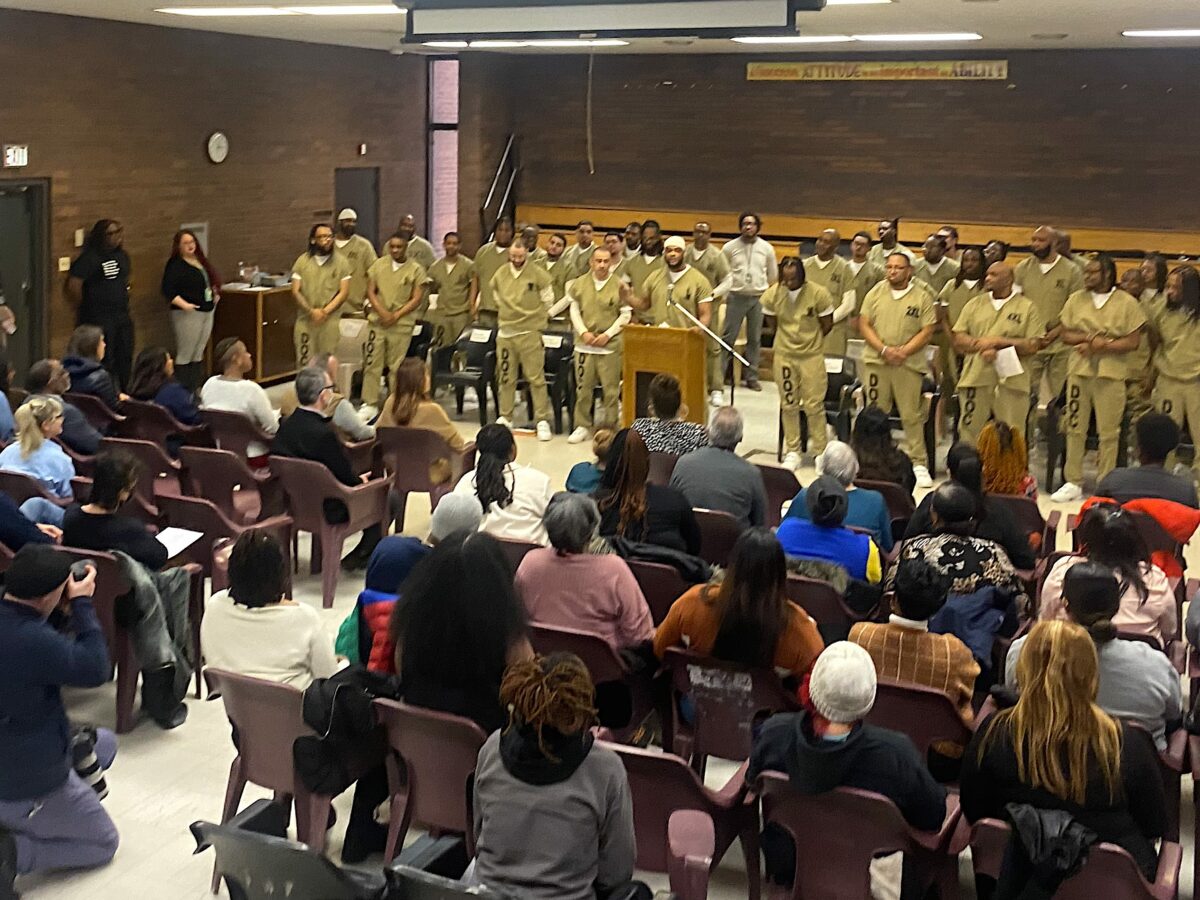This story was republished from the Illinois Answers Project, a nonpartisan investigations and solutions journalism news organization.
Cook County Jail used restraint chairs nearly 900 times from 2019 to 2023 and failed to report the incidents to the state unit that monitors jails, as required by state regulations, Illinois Answers found.
“They’ve admitted somewhat of a … failure and misunderstanding,” said Illinois Rep. La Shawn Ford, who represents part of Cook County.
State standards require jails to report use of a restraint chair as an “extraordinary or unusual occurrence” to the Jail and Detention Standards Unit (JDSU) within the Illinois Department of Corrections within three days of the incident. But Cook County Jail never did that.
Jails across Illinois say they strap people down to the chairs only as a last resort in emergency situations when someone in custody is a danger to themselves, others or property, or for transport. But an Illinois Answers investigation found jails frequently violated state standards, county policies and manufacturer guidelines and restrained people — many pre-trial detainees with mental illnesses — in chairs for hours to days at a time.
As part of the statewide investigation, Illinois Answers initially requested incident reports and logs pertaining to the use of restraint chairs at Cook County Jail, which the jail typically keeps for internal purposes. The sheriff’s office did not provide those records but did provide a list of incidents showing the incident date and time, location, a brief description and reason for use.
The list shows that Cook County Jail staff used restraint chairs 874 times in the five-year period. That’s more than at any other jail in Illinois. But it’s also a lower rate than at other facilities, taking into account the approximate number of people booked each year at each jail.
According to the list, jail staff restrained people in custody when they self-harmed, threatened or assaulted staff, broke property, had a medical or mental health emergency, refused to lock down or transfer, and more. In most cases, staff restrained people to protect them from harming themselves or staff, according to the list. In others, staff restrained people for transport, including when “a detainee refused to walk.”
Based on the initial information provided in the list, which lacked the details found in incident reports and logs, Illinois Answers could not determine if people at Cook County Jail were strapped to chairs for prolonged periods or if the jail repeatedly restrained people with mental illnesses. Those issues were common at other jails across the state.
Illinois Answers did use the list, however, to determine if the jail reported restraint chair incidents to the state as required. Illinois Answers spent months requesting “extraordinary or unusual occurrences” reports from both the county and state pertaining to the dates and times of known incidents. Neither was able to provide any evidence that the reports were submitted.
That’s a problem statewide. In fact, of the more than 5,500 known restraint chair incidents at jails throughout the state from 2019 to 2023, approximately half were not reported to the state. Cook County, which used the device more than any other jail, accounts for the largest share of the missing reports.
Asked about the reporting failures, the Cook County Sheriff’s Office said “the standard for reporting restraint chair[s] was initially unclear.” The office said it has since received clarification from the JDSU and has been reporting the use of restraint chairs since last year, after Illinois Answers began inquiring about the issue.
The lack of reporting also raises questions about the quality of annual jail inspections. Over the five-year period analyzed by Illinois Answers, jail inspectors regularly checked a box on a form indicating Cook County was properly reporting “extraordinary or unusual occurrences,” even when it was not.
The Illinois Department of Corrections did not directly respond to questions about the annual inspections or Cook County’s lack of reporting. But the department did re-issue a statement previously provided to Illinois Answers regarding lack of reporting in other counties:
“JDSU is limited in its ability to independently verify all occurrences due to its reliance on individual counties to supply accurate and detailed reports. The County Jail Standards mandate that Extraordinary and Unusual Occurrences be reported as soon as possible, but no later than three business days after the event.”
Rep. Ford said Illinois Answers’ investigation “forced an understanding” of existing reporting requirements, which he believes help protect individuals’ rights and deter use. “When you collect that data, the behavior changes,” Ford said.
Ford and several other Illinois lawmakers have previously called for statewide reform on the topic of restraint chair use. Ford said he has been speaking with the Cook County Sheriff’s Office and the Illinois Sheriffs’ Association to try to find “common ground.”
“We have to come to some compromise that will protect the safety of law enforcement as well as those that have been detained,” he said. “It’s clearly a problem, and it’s inappropriately used. And I think it violates personal human rights.”
Grace Hauck is an investigative reporter with Illinois Answers Project’s State Investigations Team.




